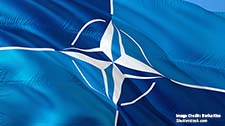Western Policy
The population giants and emerging regional hegemons China and India are located in Eurasia, as are a large proportion of the world’s most economically dynamic and politically confident nations. If such a remarkable set of figures is in itself capable to generate much political and geopolitical friction, add to that the speed and intensity of recent socio-economic changes affecting all countries in the region, and there exists a plethora of multifarious and delicate issues that—if not dealt with in an intelligent, well-informed manner—can threaten global stability.
Covering a vast geographical territory—stretching from Turkey and the Caucasus, through Central Asia, all the way to China—this research program focuses on major issues affecting the foreign policy of countries in the region, including economic and social development, traditional and non-traditional regional security, as well as governance and democracy. It also analyzes the military, political, and economic relations between the states of the region and important geopolitical actors such as the United States, the European Union, and a number of nation-states in the Middle East and South Asia. ISDP’s research on foreign policies in Eurasia intends to provide critical analysis, detailed evaluation and pragmatic recommendations to state, non-profit, and private sector actors.




